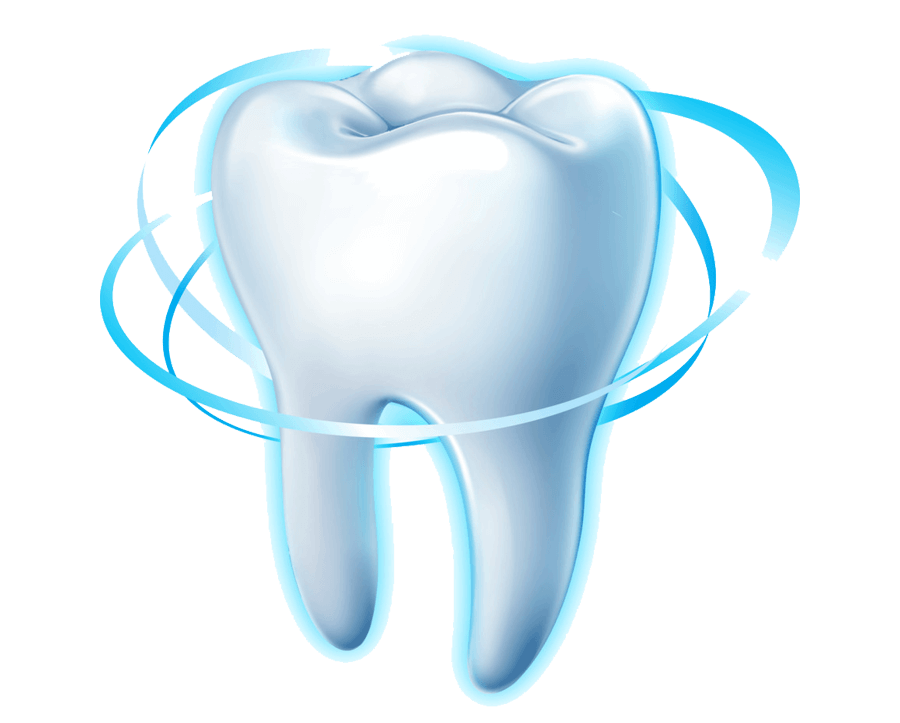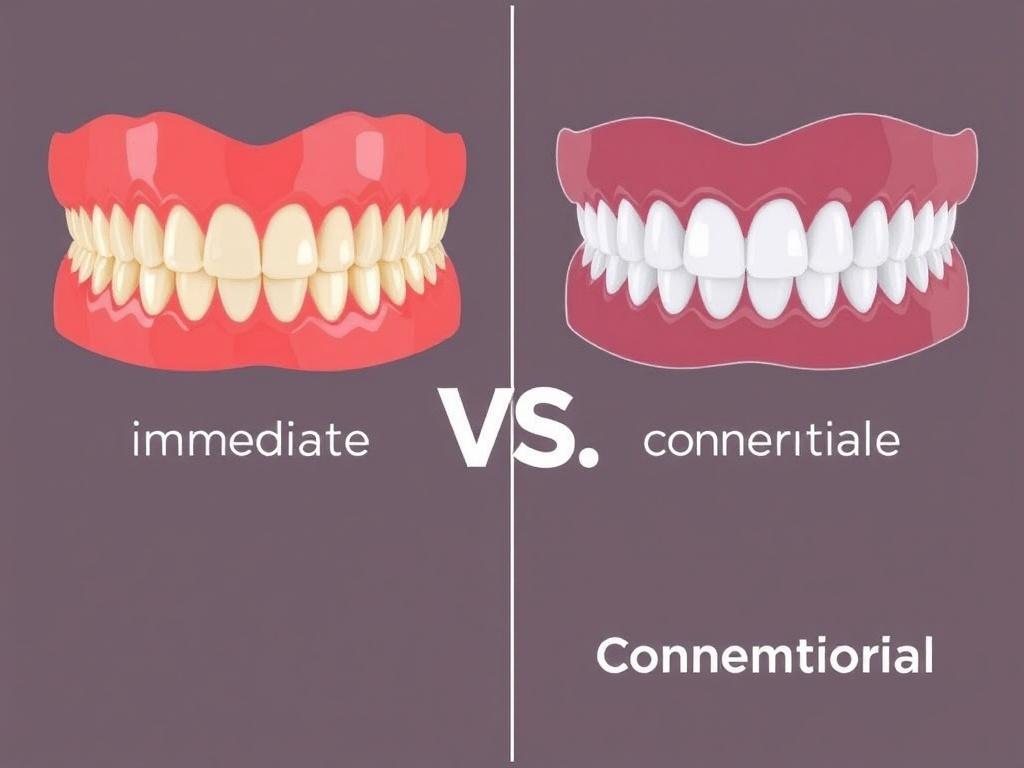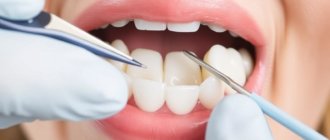Содержание
- 1 Understanding Dentures: A Brief Introduction
- 2 What Are Immediate Dentures?
- 3 What Are Conventional Dentures?
- 4 Immediate Dentures vs. Conventional Dentures: Key Differences Explained
- 5 Advantages and Disadvantages of Immediate Dentures
- 6 Advantages and Disadvantages of Conventional Dentures
- 7 Who Are Immediate Dentures Best For?
- 8 Who Are Conventional Dentures Best For?
- 9 Practical Tips for Managing Your Denture Transition
- 10 Cost Considerations: Immediate Dentures vs. Conventional Dentures
- 11 Care and Maintenance Tips for Your Dentures
- 12 Common Questions About Immediate Dentures vs. Conventional Dentures
- 13 Emerging Alternatives and Innovations
- 14 Final Thoughts: Deciding Between Immediate Dentures and Conventional Dentures
- 15 Conclusion
Understanding Dentures: A Brief Introduction
If you or a loved one are facing tooth loss, the prospect of getting dentures can feel overwhelming. Dentures are a common and effective solution to restore a smile, improve speaking, and make eating easier. But did you know there are different types of dentures available? Immediate dentures and conventional dentures are two of the main options, and both have their own unique benefits and challenges. Understanding the difference between immediate dentures vs. conventional dentures can help guide you through this important decision.
Dentures, in general, are removable replacements for missing teeth and surrounding tissues. They come in two main materials – acrylic resin, often coupled with metal for extra support. The choice of denture type hinges on timing, comfort, and aesthetics during the healing process after tooth extraction. If you want to learn exactly how immediate dentures compare with conventional dentures, and which might suit your needs better, keep reading as we explore every aspect of these restorative treatments.
What Are Immediate Dentures?
Immediate dentures are a special type of denture designed to be placed right after you have teeth extracted. Imagine getting your teeth removed and leaving the dentist’s office with a complete set of dentures already fitted—this is the essence of immediate dentures. They are made in advance using imprints of your mouth taken before your teeth come out, ensuring they can be inserted the same day as the extractions.
One big advantage of immediate dentures is the convenience and psychological comfort they offer. You never have to experience the awkward “toothless” phase that usually follows extractions. This means you can smile, speak, and eat with denture teeth from day one. However, since your gums and bone will shrink as they heal, these dentures often require several adjustments to fit properly over the coming months.
How Immediate Dentures Work
Before your teeth are removed, your dentist or prosthodontist takes a detailed impression of your mouth. These molds are sent to the dental lab where the dentures are fabricated based on your existing teeth and jaw structure. On the day of the extraction, once your teeth are taken out, the immediate dentures are inserted.
Because the tissues in your mouth begin to shrink as healing occurs, these dentures can become loose quickly. Frequent visits to the dentist will likely be necessary to reline, adjust, or even remake the dentures to maintain a good fit.
What Are Conventional Dentures?
Unlike immediate dentures, conventional dentures are not placed on the day of tooth extraction—instead, they are made after your gums and bone have fully healed, which usually takes 6 to 8 weeks. This healing period allows the tissues to stabilize completely, so the dentures can be crafted to fit the mouth in its final form.
Conventional dentures are considered the “standard” type and have been used for decades with excellent results. Since they are made after healing, they tend to fit better with fewer adjustments necessary, and patients often find them more comfortable long-term.
How Conventional Dentures Are Made
When your gums have fully healed, your dentist takes new impressions of your mouth. Using these, along with bite registrations that capture how your jaws fit together, the dentures are fabricated in a dental laboratory. This process typically requires multiple appointments for trial fittings to ensure the perfect fit, function, and appearance.
The entire process from extraction to receiving the final dentures can take several weeks, which means wearing temporary prosthetics or going without teeth during this time—something many patients find challenging.
Immediate Dentures vs. Conventional Dentures: Key Differences Explained
To help clarify the differences between immediate dentures vs. conventional dentures, here’s a detailed comparison table outlining the main factors to consider before choosing:
| Aspect | Immediate Dentures | Conventional Dentures |
|---|---|---|
| Timing of Placement | Placed on the day of tooth extraction | Placed after gums heal, typically 6-8 weeks post extraction |
| Appearance | Restore teeth immediately, no period without teeth | Gap without teeth during healing unless temporary prosthetics are used |
| Fit and Comfort | Fit may be loose due to tissue shrinkage; requires adjustments | Better initial fit, fewer adjustments needed after placement |
| Number of Appointments | Typically more appointments needed for refits & relines | Several fittings before final placement but fewer adjustments after |
| Cost | May be slightly more expensive due to adjustments | May cost less overall, but delayed placement has its own challenges |
| Healing Time | Dentures in place immediately; healing occurs with dentures in mouth | Dentures only inserted after healing completes |
| Adaptation Period | Adjustment needed as gums shrink and heal | Usually less adaptation required after placement |
Advantages and Disadvantages of Immediate Dentures
If you prioritize immediate smile restoration and want to avoid the embarrassment of having no teeth, immediate dentures offer clear benefits. Here are some pros and cons to consider:
- Advantages:
- You never go without teeth, maintaining normal appearance and function.
- Help protect extraction sites and reduce bleeding by acting as a bandage.
- Remove psychological stress associated with being toothless.
- Disadvantages:
- Frequent visits for adjustments and relining as gums shrink during healing.
- Initial fit may not be perfect, causing discomfort or sores.
- Typically more expensive in the long run due to multiple refittings.
Advantages and Disadvantages of Conventional Dentures
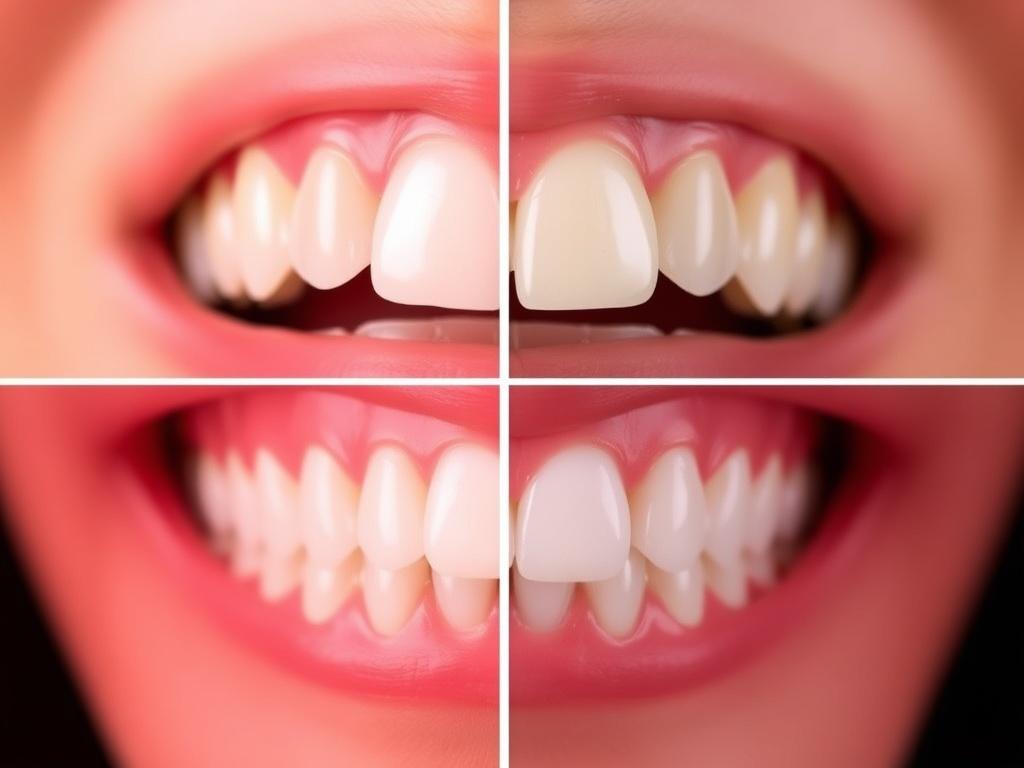
Conventional dentures take longer to receive but can offer benefits in terms of fit and durability. Here’s a balanced look at their pros and cons:
- Advantages:
- More precise fit due to healed and stable gums.
- Fewer adjustments needed after placement, improving comfort.
- Potentially lower overall cost with fewer office visits for relining.
- Disadvantages:
- Go without teeth for weeks during healing, which can be socially and psychologically difficult.
- May require the use of temporary dentures which might not be as comfortable.
- Longer total treatment time before restoration is complete.
Who Are Immediate Dentures Best For?
Immediate dentures may be the right solution for patients who:
- Require full extractions of anterior (front) teeth with high aesthetic importance.
- Strongly prefer not to experience any toothless period.
- Are able to commit to follow-up appointments for adjustments after placement.
- Do not have complex dental issues that require extensive bone healing.
Understanding your unique lifestyle, dental health, and priorities is essential, so discuss these factors with your dentist to determine if immediate dentures are right for you.
Who Are Conventional Dentures Best For?
Conventional dentures work well for people who:
- Are willing to wait for full healing before receiving dentures.
- Want minimal adjustment visits after denture placement.
- Have underlying oral health conditions requiring healing time before prosthesis placement.
- Prefer dentures with a longer lifespan and better overall fit initially.
In some cases, temporary partial dentures or other transitional options can help during the healing period.
Practical Tips for Managing Your Denture Transition
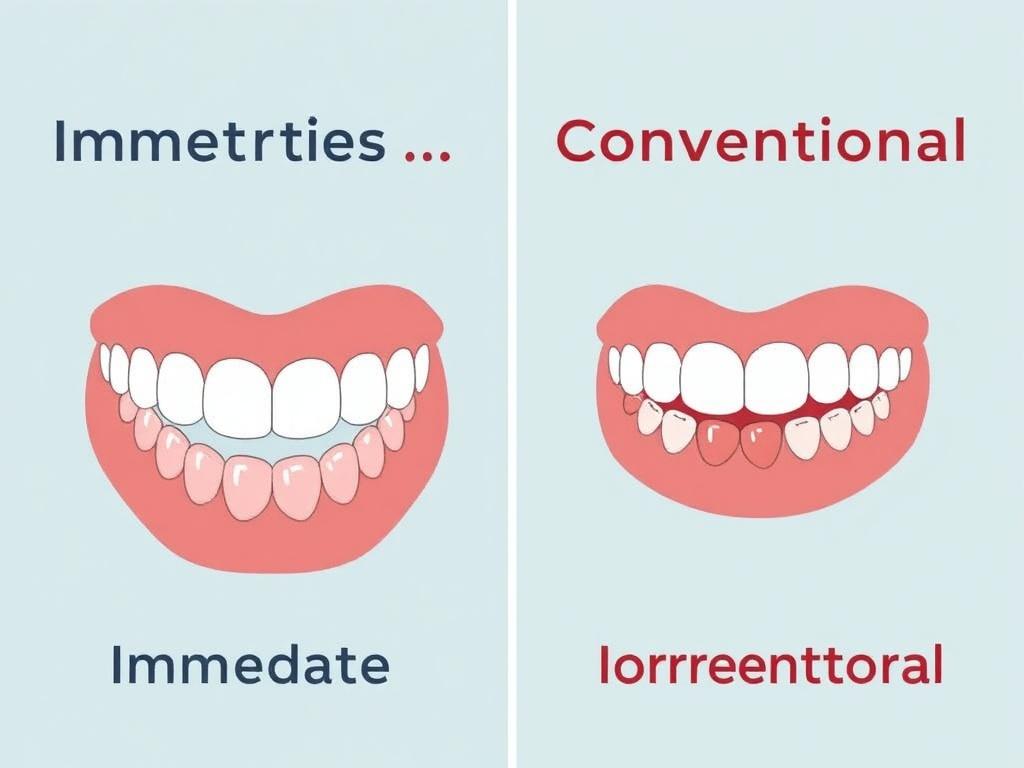
Whether you choose immediate dentures or conventional dentures, a few practical tips can help ease the transition:
During the Healing Period
- Maintain excellent oral hygiene to avoid infection.
- Eat soft foods to reduce pressure on extraction sites and gums.
- Attend all scheduled follow-ups to monitor healing and denture fit.
Adjusting to New Dentures
- Practice speaking out loud to get used to the feel of your dentures.
- Use adhesive products temporarily if fit feels loose (consult your dentist first).
- Be patient—most people adapt fully within a few weeks.
Cost Considerations: Immediate Dentures vs. Conventional Dentures
Cost is naturally a significant consideration for many patients. While prices vary depending on geographic location, dental clinic, and materials used, here’s a rough idea of the expense differences:
| Denture Type | Estimated Cost Range (USD) | Additional Expenses |
|---|---|---|
| Immediate Dentures | $1,500 – $3,000 per arch | Multiple follow-up adjustments, relines, and potential remakes |
| Conventional Dentures | $1,000 – $2,500 per arch | Temporary dentures if used, fewer relines needed |
Discuss cost details upfront with your provider, as dental insurance coverage and payment plans can vary widely.
Care and Maintenance Tips for Your Dentures
To maximize comfort and longevity, it’s important to maintain your dentures regardless of type:
- Clean dentures daily using a soft brush and denture cleaner—not regular toothpaste which can be abrasive.
- Remove dentures at night to allow gums to rest and reduce bacterial buildup.
- Store in water or a denture solution overnight to prevent warping.
- Visit your dentist regularly to check fit and oral health.
Proper care keeps your dentures looking good and reduces the risk of irritation or infection.
Common Questions About Immediate Dentures vs. Conventional Dentures
Can immediate dentures be converted into conventional dentures?
Not exactly. Immediate dentures are custom made to be worn during healing and typically need relining or replacement once healing completes. Conventional dentures are made fresh using healed tissue impressions for a better fit.
How long do dentures last?
With proper care, dentures can last 5 to 10 years. However, due to changes in the jawbone and gums over time, they will need periodic adjustments or replacement.
Are dentures uncomfortable?
Some initial discomfort is common as your mouth adapts. Immediate dentures may be less comfortable at first due to healing swelling. Over time, most people adjust and find dentures comfortable.
Emerging Alternatives and Innovations
0
In recent years, dental implants have gained popularity as a way to stabilize dentures and improve comfort. Implant-supported dentures combine the best of both worlds: stable teeth replacement without the hassle of denture slippage. However, implants involve surgery and higher costs, so they may not be suitable for everyone.
There are also flexible dentures made from newer materials that can be easier to tolerate. Discuss these options with your dentist alongside the immediate dentures vs. conventional dentures debate.
Final Thoughts: Deciding Between Immediate Dentures and Conventional Dentures
Choosing between immediate dentures vs. conventional dentures is highly personal and depends on your lifestyle, oral health, and preferences. Immediate dentures offer the convenience of an instant smile but demand patience for adjustments. Conventional dentures provide a better initial fit but require you to wait during the healing process.
Talking closely with your dental provider, understanding what to expect, and considering your comfort level will help you make the best choice. Remember, both types of dentures are effective and can restore your quality of life tremendously.
Conclusion
Ultimately, the decision between immediate dentures and conventional dentures boils down to your priorities—whether you value an instant tooth replacement to avoid being toothless or prefer a snug, more precise fit after healing. Both have their pros and cons, with immediate dentures requiring more follow-up care but sparing you from the embarrassment of missing teeth, while conventional dentures often offer better comfort and fewer adjustments but entail a longer waiting period without teeth. Whichever path you choose, regular dental care, proper maintenance, and open communication with your dentist will ensure your dentures serve you well for years to come. Embracing dentures is a big step, but with the right information and support, you can confidently restore your smile and enjoy life’s moments to the fullest.
